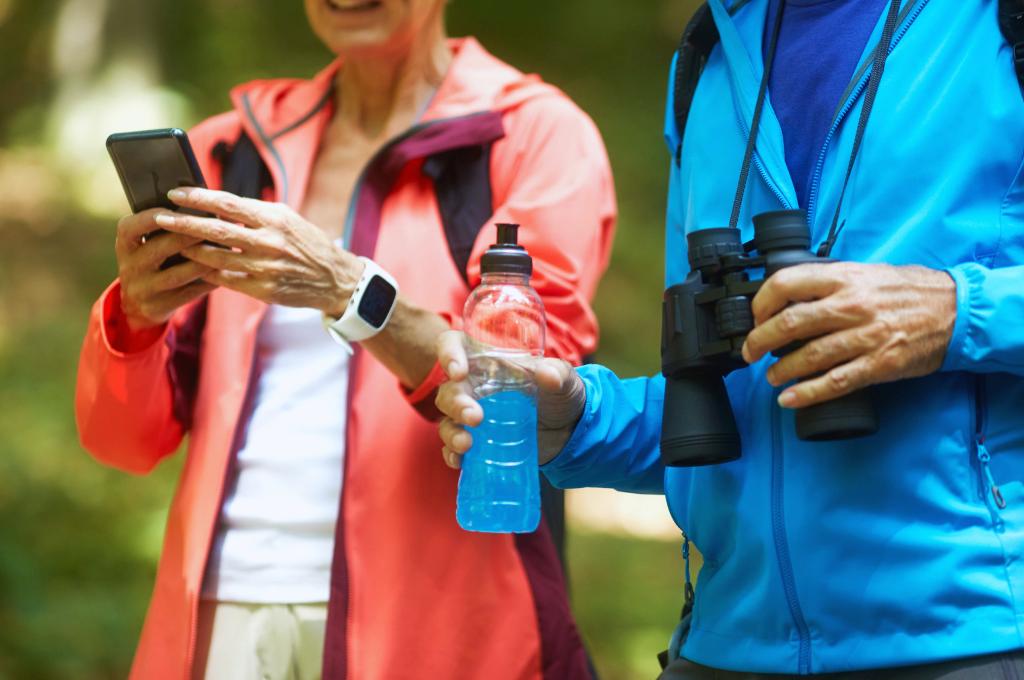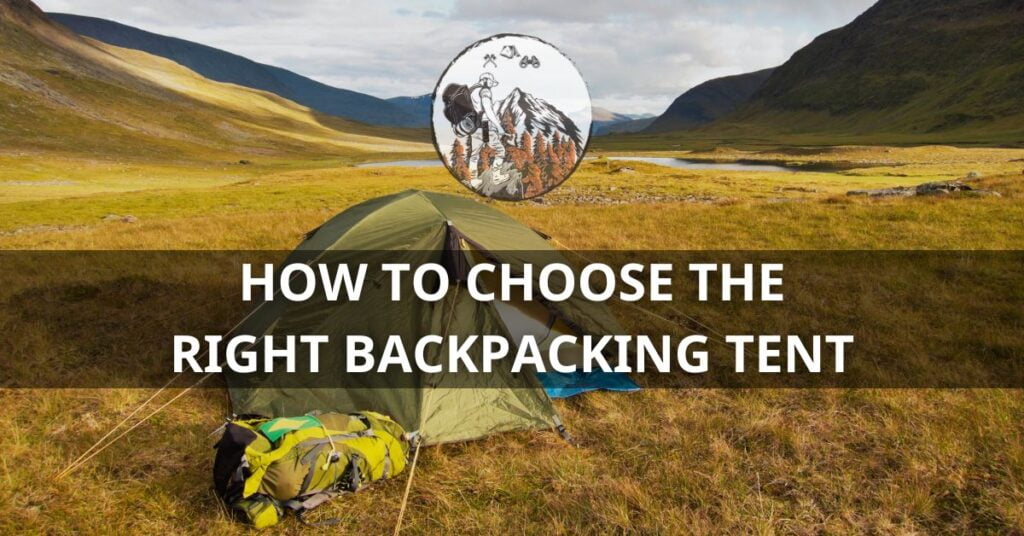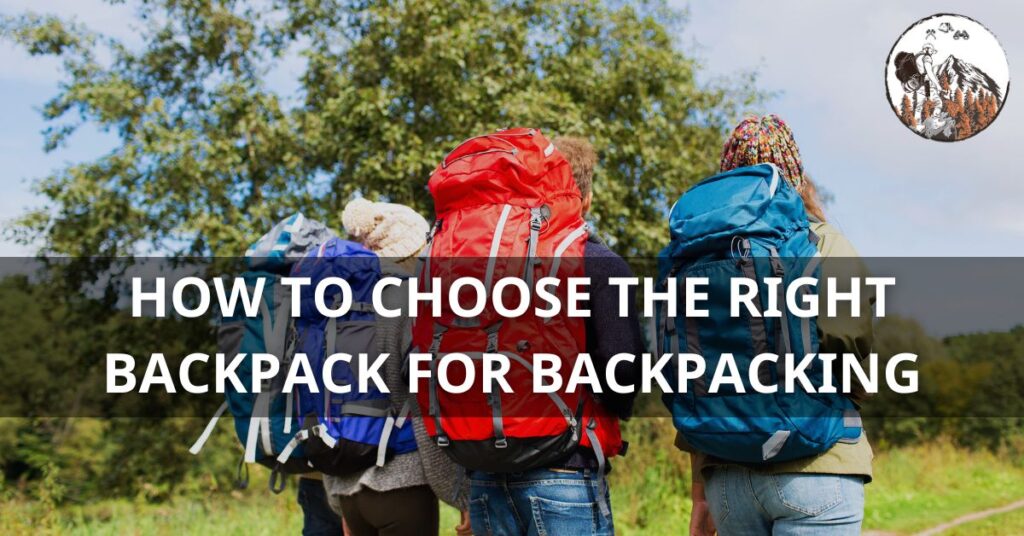When we get older, our love for adventure doesn’t fade away. Instead, it often gets stronger. Backpacking for seniors is about all exploring the outdoors, enjoying nature, and making unforgettable memories.
In this guide, we’ll talk about what senior backpacking is, why it’s awesome, and how to deal with any challenges that come your way. Whether you’re new to backpacking or a seasoned pro, prepare for a fun and informative journey into the world of backpacking for seniors.
Table of Contents
Defining Senior Backpacking
Senior backpacking means older adults going on adventures outdoors with a backpack. It’s about exploring nature and enjoying the freedom of the open trails, but it’s tailored to fit the needs and abilities of seniors. It’s a chance to have fun, stay active, and discover new places while embracing the joy of backpacking.
Benefits of Backpacking in Later Years
Backpacking in your later years brings many good things. It’s not just about hiking; it’s also about staying healthy, feeling happy, and making memories. When seniors go backpacking, they get exercise, fresh air, and time to relax. Plus, they can meet new people, see beautiful sights, and have adventures they’ll never forget.
Overcoming Age-Related Challenges
Growing older might bring some challenges, but it doesn’t mean you can’t go backpacking. Seniors can overcome things like feeling tired or worried about safety by planning and being smart. With the right gear, a positive attitude, and taking things at your own pace, age doesn’t have to stop you from enjoying the outdoors.

Preparing for the Journey
Before hitting the trails, getting ready for your backpacking adventure is essential. Here’s what you need to do:
Assessing Physical Fitness
Take a moment to evaluate your physical fitness. Are you able to walk comfortably for extended periods? Can you handle the challenges of hiking on uneven terrain? Knowing your limitations and planning accordingly is crucial to ensure a safe and enjoyable journey.
Consultation with Healthcare Professionals
Before embarking on your backpacking trip, it’s wise to consult with your healthcare provider. They can offer valuable advice on how to stay healthy and address any concerns you may have. Be sure to discuss any existing medical conditions, medications you’re taking, and any special considerations for your journey.
Packing Essentials for Senior Backpackers
When it comes to packing for your backpacking adventure, there are a few key essentials to consider
Lightweight Gear Options
Lightweight gear is essential for senior backpackers to minimize strain and ensure a comfortable journey. Here are some lightweight gear options to consider:
- Ultralight Backpack: Opt for a backpack specifically designed for lightweight backpacking, with durable materials and a minimalistic design.
- Lightweight Tent: Choose a compact and lightweight tent that offers adequate protection from the elements without adding unnecessary weight to your pack.
- Sleeping Bag: Look for a lightweight sleeping bag with high-quality insulation and a compressible design for easy packing.
- Compact Sleeping Pad: Invest in a lightweight sleeping pad that provides insulation and cushioning for a comfortable night’s sleep.
- Portable Stove: Select a lightweight stove for cooking meals on the trail, such as a compact canister stove or ultralight alcohol stove.
- Collapsible Cookware: Pack lightweight and collapsible cookware, such as titanium or aluminum pots and pans, to minimize bulk in your pack.
- Water Filtration System: Carry a lightweight water filtration system, such as a portable filter or purification tablets, to ensure access to clean drinking water.
- Trekking Poles: Use lightweight trekking poles to reduce strain on your joints and provide stability on uneven terrain.
- Lightweight Clothing: Pack lightweight and quick-drying clothing made from breathable materials to stay comfortable and dry while hiking.
- Compact Personal Items: Opt for compact and lightweight versions of personal items such as toiletries, first aid kits, and emergency supplies to save space and weight in your pack.
By selecting lightweight gear options, senior backpackers can enjoy a more comfortable and enjoyable outdoor experience without sacrificing safety or functionality.
- Medications and First Aid Kits: Don’t forget to pack any medications you may need during your trip, along with a well-stocked first aid kit. Be prepared for minor injuries and ailments that may arise while on the trail.
- Proper Footwear Selection: Choose sturdy and comfortable footwear that provides ample support and traction. Properly fitting hiking boots or shoes can help prevent blisters and provide stability on uneven terrain.
By assessing your physical fitness, consulting with healthcare professionals, and packing the right essentials, you’ll be well-prepared for your backpacking journey ahead.

Choosing Suitable Destinations
Selecting the right destination is key to ensuring a memorable and enjoyable backpacking experience. Here’s how to choose the perfect spot:
Senior-Friendly Trails and Routes
When searching for trails and routes, look for options that cater to seniors’ needs:
- Easy Terrain Options: Opt for trails with gentle inclines and well-maintained paths to minimize the physical strain.
- Accessible Amenities: Choose destinations with accessible amenities such as restrooms, water sources, and nearby lodging for added comfort and convenience.
Climate Considerations and Seasonal Planning
Before setting out, consider the climate and plan your trip accordingly:
- Check the weather forecast for your chosen destination and pack accordingly to stay comfortable and safe.
- Be mindful of seasonal changes, such as temperature fluctuations and precipitation, and adjust your plans accordingly.
Safety and Security Measures
Prioritize safety and security by taking the following precautions:
- Research potential hazards and risks in your chosen destination, such as wildlife encounters, inclement weather, or navigation challenges.
- Carry essential safety gear, including a map, compass or GPS device, first aid kit, and emergency communication device.
- Inform someone trustworthy of your travel plans, including your intended route and expected return date, and check in with them regularly during your trip.
By selecting senior-friendly trails, considering climate and seasonal factors, and prioritizing safety measures, you can choose a destination that offers both adventure and peace of mind for your backpacking journey.
Training and Conditioning
Preparing your body and mind is crucial for a successful backpacking adventure. Here’s how to get ready:
Physical Conditioning Exercises
To build strength and endurance, incorporate these exercises into your routine:
- Walking or hiking: Start with short walks and gradually increase distance and difficulty over time.
- Strength training: Focus on exercises that target major muscle groups, such as squats, lunges, and push-ups.
- Cardiovascular workouts: Include activities like cycling, swimming, or aerobics to improve heart health and stamina.
Practice Hikes and Walks
Put your training into action by going on practice hikes and walks:
- Choose trails that simulate the terrain and conditions of your planned backpacking trip.
- Start with shorter outings and gradually increase duration and difficulty as you build confidence and endurance.
- Use these practice hikes to test your gear, assess your physical abilities, and identify any areas for improvement.
Mental Preparedness Techniques
Prepare your mind for the challenges of backpacking with these techniques:
- Visualization: Imagine yourself successfully navigating trails, overcoming obstacles, and enjoying the journey.
- Positive self-talk: Replace negative thoughts with affirmations and reminders of your capabilities and strengths.
- Stress management: Practice relaxation techniques such as deep breathing, meditation, or mindfulness to stay calm and focused during challenging situations.
By focusing on physical conditioning exercises, practicing hikes and walks, and incorporating mental preparedness techniques into your routine, you’ll be well-prepared to tackle the trails and enjoy a rewarding backpacking experience.

Strategies for Comfortable Backpacking
Ensuring comfort during your backpacking adventure is essential for an enjoyable experience. Here are some strategies to help you stay comfortable on the trail:
Proper Backpack Fitting and Adjustment
- Start by choosing a backpack that fits your body comfortably and distributes weight evenly.
- Adjust the shoulder straps, hip belt, and sternum strap to ensure a snug and secure fit.
- Experiment with different adjustments and make tweaks as needed to prevent discomfort and minimize strain on your body.
Techniques for Carrying Loads Safely
- Pack your backpack thoughtfully, placing heavier items closer to your back and distributing weight evenly.
- Use compression straps to stabilize the load and prevent shifting while hiking.
- Take frequent breaks to rest and readjust your pack, especially on longer hikes or steep terrain.
Rest and Recovery Practices
- Schedule regular rest breaks to give your body a chance to recover and recharge.
- Take off your backpack during breaks to relieve pressure and allow your muscles to relax.
- Practice proper stretching and gentle exercises to alleviate stiffness and improve circulation.
You can enhance your comfort and enjoyment while backpacking by focusing on proper backpack fitting and adjustment, carrying loads safely, and incorporating rest and recovery practices into your routine.

On the Trail: Tips for Senior Backpackers
Navigating the trails requires careful planning and consideration, especially for senior backpackers. Here are some essential tips to help you make the most of your journey:
Pace Management
- Pace yourself wisely to conserve energy and avoid exhaustion.
- Start at a comfortable pace and adjust as needed based on terrain and conditions.
- Take regular breaks to catch your breath and enjoy the scenery, ensuring you don’t overexert yourself.
Hydration and Nutrition Guidelines
- Stay hydrated by drinking plenty of water throughout your hike, even if you don’t feel thirsty.
- Pack lightweight, nutritious snacks to fuel your body and maintain energy levels.
- Consider bringing electrolyte-rich beverages or snacks to replenish lost minerals during strenuous activity.
Coping with Altitude Changes
- Gradually acclimate to higher altitudes by starting with shorter hikes and gradually increasing elevation gain.
- Stay aware of symptoms of altitude sickness, such as headache, nausea, and dizziness, and take appropriate measures if you experience them.
- Hydrate well, avoid alcohol and caffeine, and listen to your body’s signals to ensure a safe and enjoyable experience at higher elevations.
By practicing effective pace management, following hydration and nutrition guidelines, and being mindful of altitude changes, senior backpackers can enjoy the trails safely and comfortably.
Embracing the Experience
Backpacking isn’t just about reaching a destination; it’s about immersing yourself in the journey and embracing all that nature has to offer. Here are some ways to fully embrace the backpacking experience:
Connecting with Nature
- Take time to appreciate the beauty and tranquility of your surroundings.
- Immerse yourself in the sights, sounds, and scents of the natural world.
- Engage your senses by observing wildlife, admiring scenic vistas, and marveling at natural wonders.
Social Interaction Opportunities
- Connect with fellow backpackers along the trail, sharing stories and experiences.
- Join group hikes or guided tours to meet new people and forge meaningful connections.
- Participate in campfire conversations or communal meals to foster camaraderie and friendship.
Personal Growth and Fulfillment
- Use backpacking as an opportunity for self-reflection and personal growth.
- Challenge yourself to step outside your comfort zone and try new things.
- Reflect on your experiences, accomplishments, and lessons learned to cultivate a sense of fulfillment and gratitude.
By embracing the opportunity to connect with nature, engage in social interactions, and foster personal growth, you can truly make the most of your backpacking adventure and create memories that will last a lifetime.

Overcoming Common Challenges
While backpacking can be immensely rewarding, it’s not without its challenges. Here’s how to overcome some of the most common hurdles:
Dealing with Fatigue and Soreness
- Listen to your body and take breaks as needed to rest and rejuvenate.
- Stretch regularly to alleviate muscle tension and reduce the risk of soreness.
- Stay hydrated and fuel your body with nutritious snacks to maintain energy levels during long hikes.
Managing Chronic Conditions on the Trail
- Prioritize communication with your healthcare provider to manage chronic conditions effectively.
- Pack necessary medications and supplies, ensuring they are easily accessible during your hike.
- Monitor your symptoms closely and know when to seek medical assistance if needed.
Coping with Unforeseen Situations
- Stay calm and assess the situation carefully before taking action.
- Carry essential safety gear, such as a first aid kit, flashlight, and emergency shelter, to prepare for unexpected events.
- Have a plan in place for communication and signaling for help in case of emergencies.
By proactively addressing challenges such as fatigue and soreness, managing chronic conditions, and preparing for unforeseen situations, you can navigate the trails with confidence and enjoy a safe and fulfilling backpacking experience.

Safety Measures and Emergency Preparedness
Ensuring your safety and being prepared for emergencies is paramount when backpacking in the wilderness. Here are essential safety measures and emergency preparedness tips:
Navigation and Trail Awareness
- Familiarize yourself with the trail map, route, and terrain before setting out.
- Stay aware of your surroundings and pay attention to trail markers and landmarks.
- Bring a compass, GPS device, or map and know how to use them to navigate effectively, especially in unfamiliar areas or low visibility conditions.
Communication Devices and Emergency Contacts
- Carry a fully charged cell phone or satellite communicator for communication in case of emergencies.
- Share your itinerary and expected return time with a trusted friend or family member.
- Know emergency contact numbers for local authorities or search and rescue teams in the area you’ll be hiking.
Basic Wilderness First Aid Training
- Take a wilderness first aid course to learn essential skills for managing injuries and medical emergencies in remote locations.
- Pack a comprehensive first aid kit with supplies for treating common injuries such as cuts, sprains, and insect bites.
- Know how to administer first aid for more serious emergencies, including CPR, wound care, and treating shock.
By prioritizing navigation and trail awareness, carrying communication devices, and having basic wilderness first aid training, you can minimize risks and respond effectively to emergencies while backpacking in the wilderness.
Environmental Awareness and Leave No Trace Principles
Protecting the environment and practicing Leave No Trace principles are essential for preserving natural spaces for future generations. Here’s how to minimize your environmental impact while backpacking:
Minimizing Environmental Impact
- Stay on designated trails to prevent damage to vegetation and soil erosion.
- Avoid trampling fragile habitats, such as wetlands or alpine meadows.
- Minimize noise pollution by keeping conversations and activities at a respectful volume.
Responsible Waste Management
- Pack out all trash, including food wrappers, toilet paper, and other waste.
- Dispose of human waste properly by burying it in a cathole at least 6-8 inches deep and 200 feet away from water sources.
- Pack out used hygiene products and sanitary items to prevent contamination of water sources.
Leave No Trace Ethics
- Follow the seven Leave No Trace principles: plan ahead and prepare, travel and camp on durable surfaces, dispose of waste properly, leave what you find, minimize campfire impacts, respect wildlife, and be considerate of other visitors.
- Leave natural and cultural artifacts undisturbed for others to enjoy.
- Practice responsible wildlife viewing by observing from a distance and avoiding actions that may disrupt or harm wildlife.
By adhering to Leave No Trace principles and prioritizing environmental awareness, you can minimize your impact on the wilderness and help preserve these precious natural spaces for generations to come.
Documenting the Journey
Capturing memories and reflecting on your experiences can enhance the enjoyment of your backpacking adventure. Here are some ways to document your journey:
Photography Tips for Senior Backpackers
- Invest in a lightweight and durable camera or smartphone to capture stunning photographs along the trail.
- Experiment with different angles, lighting conditions, and compositions to create visually appealing shots.
- Focus on capturing moments that evoke emotion or highlight the beauty of nature, such as sunrise and sunset views, wildlife encounters, or panoramic landscapes.
Journaling and Reflection Practices
- Bring along a small notebook or journal to record your thoughts, feelings, and observations throughout your backpacking journey.
- Take time each day to reflect on your experiences, noting memorable moments, challenges overcome, and lessons learned.
- Use journaling as a tool for self-discovery and personal growth, allowing yourself to process emotions and insights gained from the wilderness.
Sharing Experiences with Others
- Share your backpacking adventures with friends, family, and fellow outdoor enthusiasts through storytelling, social media posts, or blog entries.
- Organize a slideshow or photo presentation to showcase your photos and share anecdotes from your journey with others.
- Encourage others to explore the outdoors by sharing tips, recommendations, and inspiration from your backpacking experiences.
By documenting your journey through photography, journaling, and sharing experiences with others, you can preserve memories, gain perspective, and inspire others to embark on their own outdoor adventures.

Post-Backpacking Reflections
After completing your backpacking adventure, it’s essential to take time to reflect on your journey and plan for the future. Here are some ways to do so:
Celebrating Achievements
- Take pride in your accomplishments and celebrate the milestones you achieved during your backpacking trip.
- Reflect on the challenges you overcame, the new skills you acquired, and the memories you created along the way.
- Share your achievements with friends, family, and fellow backpackers to inspire others and bask in the joy of your success.
Addressing Post-Trip Recovery Needs
- Take care of your body by prioritizing rest, hydration, and nutrition in the days following your backpacking adventure.
- Address any minor injuries or ailments with proper self-care and follow up with medical attention if needed.
- Allow yourself time to adjust back to your daily routine and process the physical and emotional experiences of your trip.
Planning for Future Adventures
- Reflect on your backpacking experience and identify areas for improvement or new goals for future adventures.
- Research potential destinations, trails, and activities to inspire and motivate your next outdoor excursion.
- Set realistic goals and create a plan to prepare physically, mentally, and logistically for your future backpacking adventures.
By taking time to celebrate achievements, address post-trip recovery needs, and plan for future adventures, you can make the most of your backpacking experience and continue to embrace the joy of outdoor exploration.
Conclusion
So, backpacking for seniors offers a wonderful opportunity to connect with nature, challenge oneself, and create lasting memories. Throughout this journey, we’ve explored essential tips and strategies to ensure a safe, comfortable, and fulfilling experience.
By prioritizing preparation, safety, and environmental stewardship, senior backpackers can embark on adventures with confidence and enthusiasm. Remember to celebrate your achievements, take care of yourself post-trip, and keep planning for future adventures.
Whether you’re a seasoned hiker or new to backpacking, embrace the joy of exploration and cherish the moments spent in the great outdoors. Happy trails!
FAQS
What age is considered “senior” for backpacking?
There are no official age limits for senior backpacking, as the term “senior” can vary in significance across different cultures and individuals. The key is to understand your limitations and adapt your activities accordingly.
Are there specific destinations recommended for senior backpackers?
Yes, there are many senior-friendly destinations, including well-maintained trails with easy terrain and accessible amenities.
How can seniors manage physical limitations while backpacking?
Seniors can manage physical limitations by starting with shorter hikes, pacing themselves, and choosing trails suited to their abilities.
What safety precautions should senior backpackers take?
Senior backpackers should prioritize navigation skills, carry communication devices, and inform others of their itinerary for safety.
How can family and friends support senior backpackers?
Family and friends can offer encouragement, help with trip planning, and provide assistance with physical preparation and gear selection.
Is backpacking suitable for seniors with chronic health conditions?
Backpacking can be suitable for seniors with chronic health conditions, but it’s essential to consult with a healthcare provider before embarking on a trip.
What are the mental health benefits of senior backpacking?
Senior backpacking can improve mood, reduce stress, and promote a sense of accomplishment and well-being through immersion in nature.
How can seniors stay safe while backpacking alone?
Safety is paramount, and seniors backpacking alone should share their itinerary with someone, carry emergency communication devices, and be familiar with basic first aid techniques. Additionally, hiking in well-traveled areas can provide a sense of security due to the higher likelihood of encountering assistance if needed.
What should seniors do in case of medical emergencies on the trail?
In the event of a medical emergency, seniors should remain as calm as possible and assess the situation. If you have a GPS beacon, activate it. If you’re near a high-traffic area, attempt to signal for help. If you’re hiking with others, devise an action plan and designate tasks. The key is to act quickly and decisively to handle the emergency.



